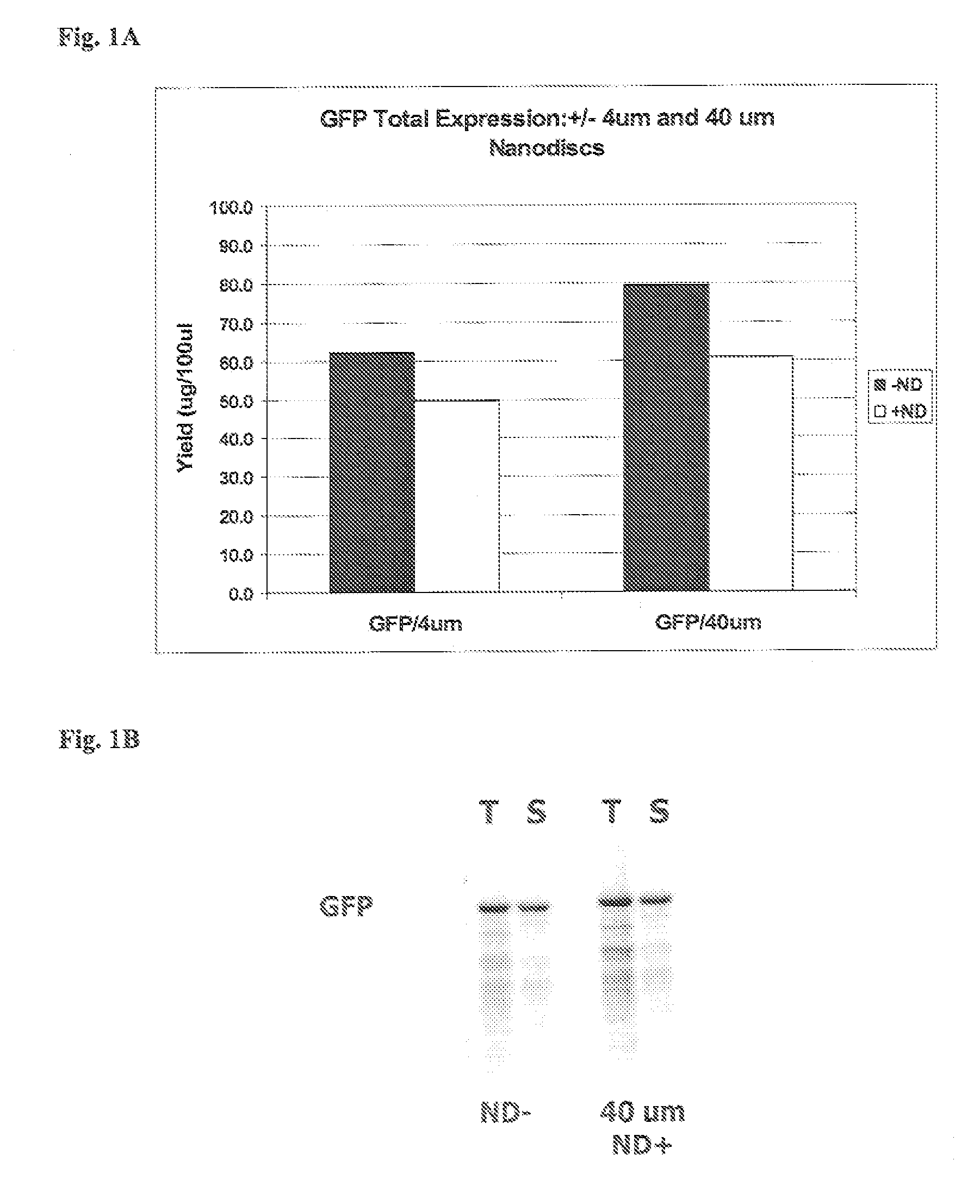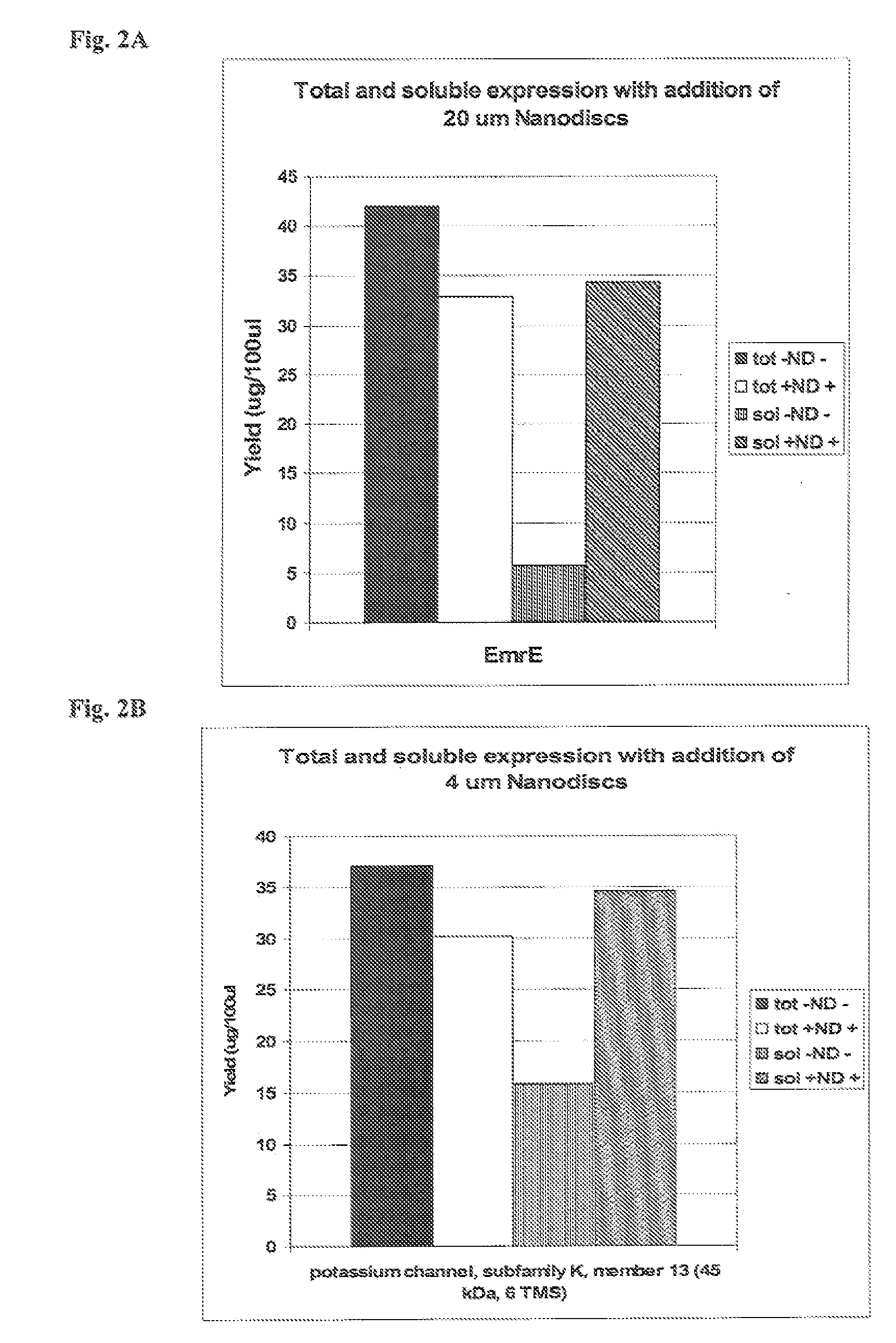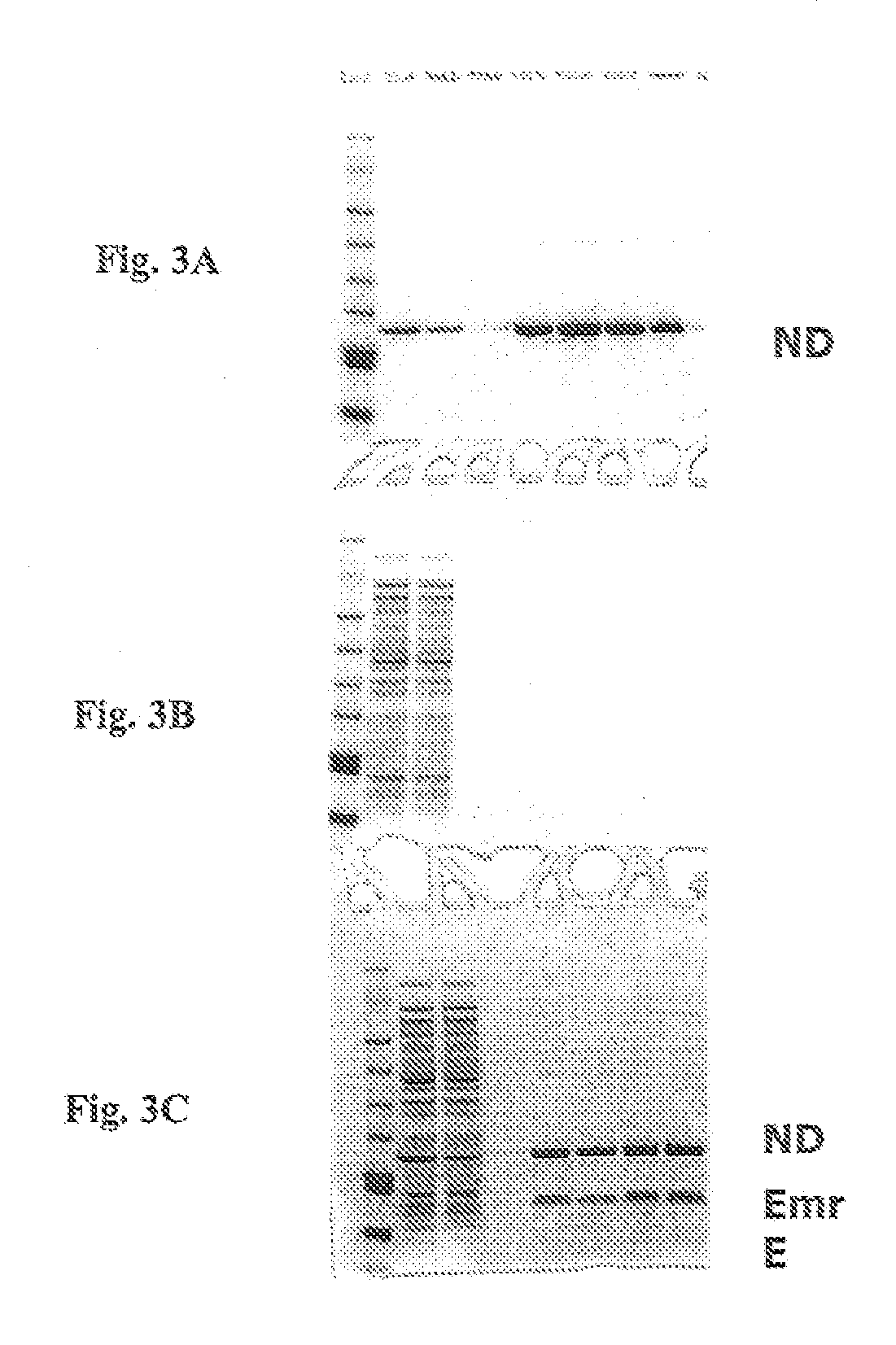In vitro protein synthesis systems for membrane proteins that include adolipoproteins and phospholipid-adolipoprotein particles
a technology of membrane proteins and adolipoproteins, applied in the field of in vitro protein synthesis systems, can solve the problems of inability to provide inability to achieve in vitro synthesis systems, laborious and often unsuccessful endeavors, etc., and achieve the goal of providing membrane proteins in soluble form, but still requires a large effort in purification and solubility.
- Summary
- Abstract
- Description
- Claims
- Application Information
AI Technical Summary
Benefits of technology
Problems solved by technology
Method used
Image
Examples
example 1
In Vitro Expression of a Non-Membrane Protein in the Presence of Phospholipid-Apolipoprotein Particles
[0177] This example illustrates that the presence of nanodiscs in a prokaryotic in vitro translation system does not have a deleterious effect on the translation of non-membrane proteins.
[0178] In vitro protein synthesis reactions using plasmid DNA templates were assembled as follows: Standard 50 or 100 microliter EXPRESSWAY™ cell free expression system (Invitrogen, Carlsbad, Calif.) reactions were assembled and incubated at 37° C. essentially according to the manufacturer's instructions. The reactions included 600-800 micrograms of E coli extract made using an S30 buffer that contained 0.1% Triton-X 100 containing 2.5 micrograms per mL of Gam protein, 820U T7 Enzyme, 20U RNase Out, 0.5 microliters 35S-Methionine, 1.25 mM amino acids, and 0.5-1 μg template DNA (either circular or linear) in 1×IVPS Buffer (58 mM Hepes, pH 7.6, 1.7 mM DTT, 1.2 mM ATP, 0.88 mM UTP, 0.88 mM CTP, 0.88...
example 2
In Vitro Synthesis of Membrane Proteins in the Presence of Nanodiscs
[0182] This example illustrates that the presence of phospholipids-apolipoprotein particles in an in vitro translation system enhances the yield of soluble synthesized membrane proteins of both prokaryotic and eukaryotic origin.
[0183] EmrE, a bacterial membrane protein (multidrug resistance protein), was translated using 35S-Methionine in EXPRESSWAY™ cell free expression system (Invitrogen, Carlsbad, Calif.) reactions that included 20 micromolar PAPs. In vitro protein synthesis reactions were performed as described in Example 1. Total and soluble protein from the in vitro synthesis reactions were electrophoresed as described in Example 1. The results of autoradiography of a NuPAGE® Novex® 4-12% Bis-Tris gel (Invitrogen, Carlsbad, Calif.) on which the translation products were electrophoresed are depicted in histogram form in FIG. 2a. The presence of PAPs in the in vitro translation mix increased the yield of solu...
example 3
In Vitro Synthesized Membrane Proteins Co-Localize with 2Phospholipid-Apolipoprotein Particles
[0186] This example demonstrates that the presence of phospholipid-apolipoprotein particles in an in vitro translation system results in the insertion of synthesized membrane proteins into PAPs.
[0187] The apolipoprotein particle protein, or scaffold protein, MSP1T2, includes a his tag. Twenty micromolar PAPs made with the MSP1T2 his-tagged scaffold protein could be purified using a Ni-NTA resin (FIG. 3a, lanes 5-8 of a Coomassie-stained gel contain the column eluate fractions). As a control, EmrE protein was synthesized in a cell-free translation reaction containing 35S-Methionine in the absence of PAPs, using EXPRESSWAY™ cell free expression system (Invitrogen, Carlsbad, Calif.) reactions as detailed in Example 1. No EmrE (which was not his-tagged) was purified on the Ni-NTA resin (FIG. 3b, lanes 5-8 contain the column eluate fractions). However, with addition of PAPs having a his-tagge...
PUM
 Login to View More
Login to View More Abstract
Description
Claims
Application Information
 Login to View More
Login to View More - R&D
- Intellectual Property
- Life Sciences
- Materials
- Tech Scout
- Unparalleled Data Quality
- Higher Quality Content
- 60% Fewer Hallucinations
Browse by: Latest US Patents, China's latest patents, Technical Efficacy Thesaurus, Application Domain, Technology Topic, Popular Technical Reports.
© 2025 PatSnap. All rights reserved.Legal|Privacy policy|Modern Slavery Act Transparency Statement|Sitemap|About US| Contact US: help@patsnap.com



